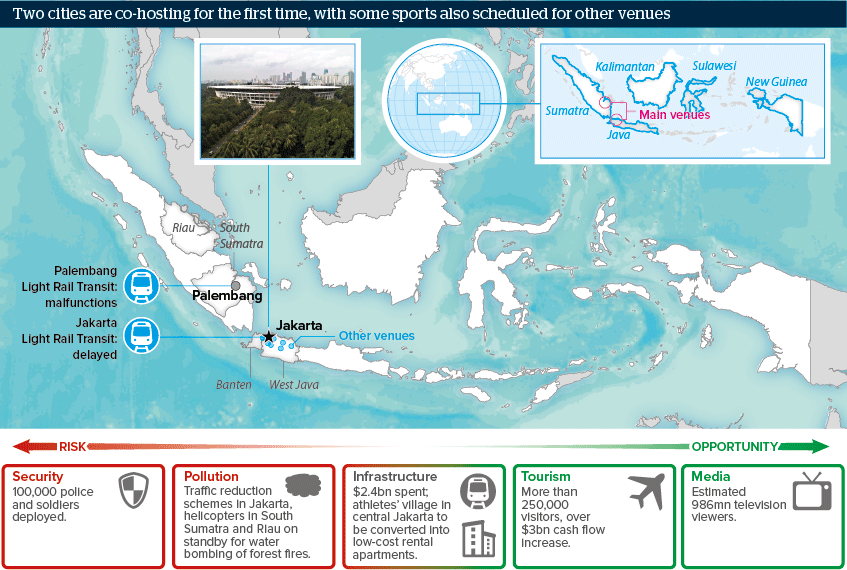Asian Games bring short-term risks for Jokowi
Any mishaps would harm the president’s re-election prospects
Source: Oxford Analytica; Photo: Nur Cholis
Outlook
The 18th Asian Games, which began in Indonesia on August 18 and will run until September 2, come eight months ahead of the country’s presidential and legislative elections.
For the duration of the world’s second-largest multi-sport event, Indonesia will be on high alert for militant attacks targeting the games, haze from forest fires in Sumatra and glitches affecting newly built infrastructure. Any such setbacks would damage the country’s standing in front of visiting spectators and a large international audience.
If the Asiad passes off successfully, Indonesia’s enhanced reputation should boost President Joko ‘Jokowi’ Widodo’s bid for re-election next year.
Impacts
- The widely dispersed venues will increase the challenge of managing traffic and ensuring security for 11,000 athletes and 5,000 officials.
- The facial recognition technology installed in the main stadium in Jakarta will be used increasingly at venues worldwide.
- Although the Jakarta Light Rail Transit (LRT) was not ready in time for the games, it should ease congestion in the long term.
- The Palembang LRT may require further operational re-evaluation following recent malfunctions.
- Joint teams in some sports will aid the inter-Korean thaw.
See also
- Indonesia faces major fallout from football disaster - Oct 3, 2022
- Jakarta will lead in South-east Asian counterterrorism - Feb 14, 2019
- Indonesia’s infrastructure drive masks safety risks - Jul 12, 2018
- More graphic analysis
